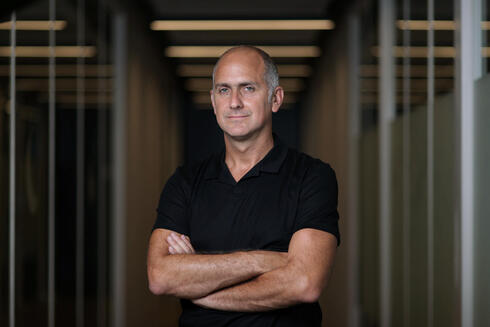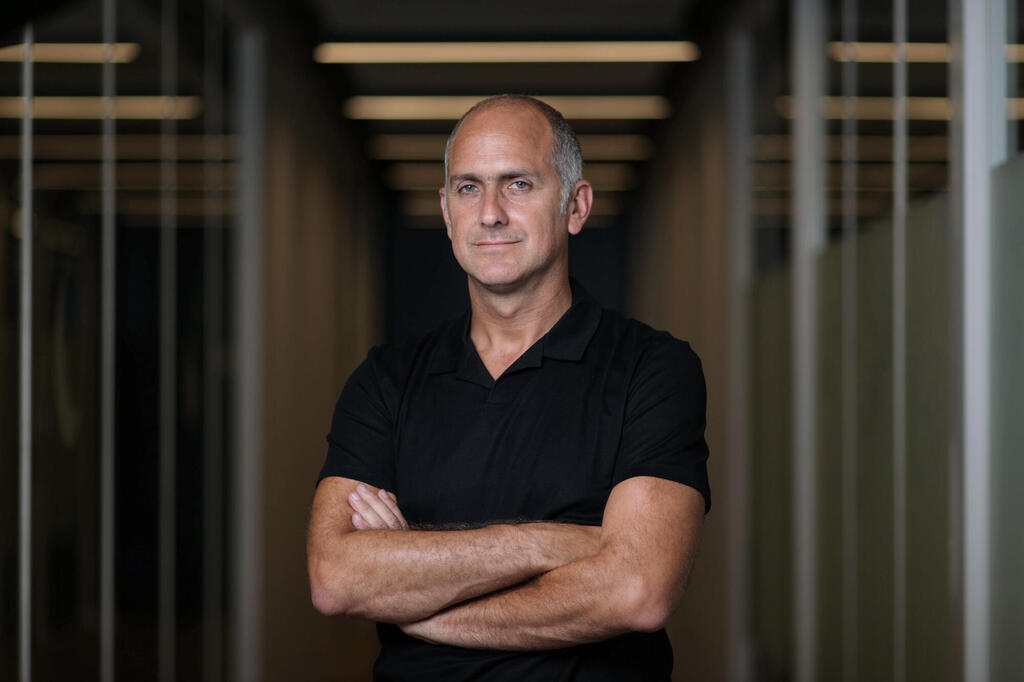
Digital bank One Zero losses hit $170 million in two years
One Zero claims that they are meeting the business plan and that they will reach profitability at the end of 2025. CEO Gal Bar Dea: "We expected more accounts to be opened, but it was a challenging year."
Digital bank One Zero lost NIS 357 million ($98M) in 2023, the bank's first full year of operation. In 2022, which was the year of establishment, in which the bank had almost no income, it lost NIS 263.4 million ($72M), so that in two years it has lost a total of NIS 620 million ($170M).
Since its establishment, the bank, controlled by Prof. Amnon Shashua, has raised NIS 960 million ($262M), so that it has already "burned" close to two-thirds (about 65%) of the funds it raised. The bank is expected to continue raising funds until it reaches profitability, which the bank says will happen at the end of 2025. In the first quarter, One Zero raised NIS 88 million ($24M) from its shareholders, headed by Shashua, and these days it is working on raising another NIS 100 million ($27M). The constant fundraising is intended to ensure that the bank meets the capital requirements of the Bank of Israel.
This is the first time that the bank, which began operating in August 2022, published a full financial report (last year only a few key figures were published). Nobody expected that the bank, under the management of Gal Bar Dea, would reach profitability in its first year of operation, and therefore the question regarding its results was not whether there would be a loss, but how deep the loss would be, and it seems that it is quite deep. Despite the heavy losses, Bar Dea sounded optimistic in a conversation with Calcalist: "The business will be profitable within 3 years of establishment. The current income per customer proves that we are on our way there."
The bank's total operating expenses were NIS 381 million ($104M), compared to NIS 264 million ($72M) in 2022, during which the bank began operating as mentioned. A significant expenditure item, which also reflects the expansion of the bank's activities, is salary expenses, which increased by 30% compared to 2022 and amounted to NIS 150 million ($40M). The average number of employees at the bank reached 413 employees last year, a 27% increase compared to the figure for 2022. At the same time, the number of employees is not expected to increase this year after the bank cut dozens of jobs following a transition to automation processes in various areas.
Fairly high expenditures were also recorded in the field of marketing and advertising. Against the background of the bank's effort to raise awareness of its existence, it spent 52.7 million shekels ($14M) in advertising and marketing and a total of 95.6 million shekels ($26M) in the years 2022-2023. These are advertising and marketing budgets similar in scope to the First International Bank of Israel, which is the country’s fifth largest bank.
Despite the significant investment in marketing and advertising, and despite the favorable conditions offered by the bank, such as improved interest rates compared to the competitors, the public in Israel did not flock in droves. One Zero currently has 100,000 customers and 90,000 accounts. 30% of the customers are defined as inactive customers, and 40% of the customers are considered to have a high level of activity who also pay the bank subscription fees through one of its plans.
In deposits and credit, which are the basic products of banking, the scope of One Zero's assets is not high. The total deposits managed by One Zero as of the end of 2023 is NIS 1.8 billion ($491M). Although the bank offers the highest interest rates on the market, this is a low amount compared to the total household deposits in Israel, which stands at NIS 730 billion ($200B). One Zero points out that if you look at the amount of the total funds deposited last year (and not at the total of all deposits), then the bank actually reaches a market share of 2.5% of the total deposited even though its market share in the number of accounts in Israel is 1.2%.
The bank's credit activity is also not profitable yet. One Zero's loan portfolio is only NIS 245 million ($67M). For this case, the bank made a high provision for credit losses of NIS 18.2 million ($5M), which is more than 7% of the scope of the credit portfolio. It is important to emphasize that this is a provision that is mainly done for accounting purposes. One Zero explains that the high provision is due to the accounting rules which force the bank to make an especially high provision for each new loan, and since the credit portfolio was practically built from scratch, then the provisions constitute a significant share of the total portfolio. The high rate of provisions means that the bank's lending activity is still loss-making. The bank estimates that these losses will continue but will be reduced in 2024, and that next year the activity will become profitable.
The bank's deposit and lending activities yielded interest income for the bank last year, which amounted to only NIS 42 million ($11M). Since the bank's credit portfolio is quite small, the bulk of the financing income (85%) resulted from the deposit of the public's money in the Bank of Israel.
"We expected more accounts to be opened"
As mentioned, One Zero's number of customers reached close to 100,000. The digital bank admits that they thought they would be able to recruit new customers faster, and on a much larger scale, and in this sense 70,000 active customers is a disappointing result. Alongside this, in the financial report the bank emphasizes two points: the first is the proportion of customers who opened a bank account at One Zero out of the total number of bank accounts opened. According to the bank, one out of every three new accounts, in the period between June 2022 and June 2023, was opened with them. "On average 200,000 accounts are opened per year. We got one out of every three accounts that were opened and this is a statistic that pleasantly surprised us," notes Bar Dea.
He further adds: "The numbers are in line with the business plan. Banking is a marathon, and the transition barriers are not simple. In England, it took a decade to reach a situation where a third of the accounts are in digital banks." At the same time, Bar Dea admits that "we expected that in total more accounts would be opened, but it was a challenging year with the legal reform and the current war."
A figure that is published by the bank and does not appear in the reports of the other banks is the average annual income per customer, which at One Zero is NIS 643 ($175). Although this income is significantly lower than the income of the major banks, estimated at thousands of shekels per customer, the bank claims that it is almost four times higher than the income of digital banks in the world in their first year of operation.
The bank's report also reveals its top earners. The data shows that last year Bar Dea received a salary at a cost of NIS 2.05 million ($560K), and Shouky Oren, the chairman, received a salary at a cost of NIS 1.52 million ($415K).
The NIS 357 million ($98M) loss increases the burden of proof on the bank, including in its ability to transition to profitability, and even more so in its ability to return all the hundreds of millions of shekels invested in its establishment. The bank intends to do this, of course, by recruiting new customers, but mainly by increasing the income of the existing customers, who enter the bank's activities in a gradual manner. In addition, the bank plans to introduce new activities this year, primarily trading in Israeli securities (currently, the bank can only trade in foreign securities).
At the same time, the bank's management has recently undergone a major shake-up, with the promotion of the CEO of the digital bank Bar Dea to the position of CEO of the group, and the departure of the VP of risk management and the VP of technology of the bank leading to a wide round of appointments.














